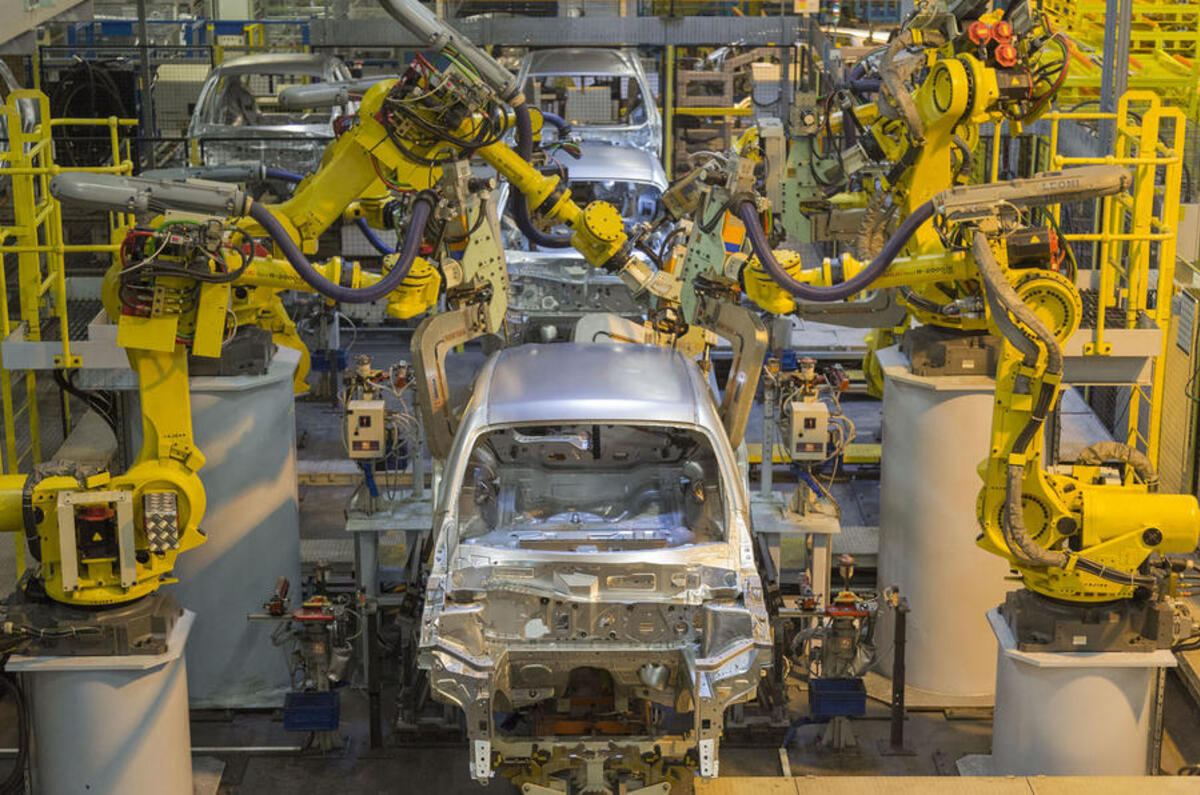UK car production fell 9.1% year on year in 2018, while automotive investment almost halved, according to the Society of Motor Manufacturers and Traders.
UK car plants produced 1.52 million cars in 2018, the lowest figure in five years. Cars made and sold in the UK fell 16.3% while exports dropped 7.3%. Eight in ten cars made in the UK are exported.
The decline is being blamed on regulatory changes and diesel policy uncertainty, plus slumps in demand in both China and Europe. Declining consumer and business confidence as a result of Brexit is another major factor that was cited.
“The bottom line is that it’s a deeply depressing figure," said SMMT chief executive Mike Hawes. "Product cycles always have an effect. WLTP [emissions changes] affected production. Diesel uncertainty - not just in the UK but also in Europe, but particularly Germany and France - was a factor.
Opinion: Will Brexit kill the British car industry?
“Furthermore, there is falling business and consumer confidence here and elsewhere, and UK manufacturers are exposed to the global market.”
Meanwhile, investment in the UK automotive industry plummeted by 46.5% to £588.6 million. It is the first time since 2012 that investment has been less than £1 billion. Firms announcing investments in 2018 included Aston Martin and car seating and electrical company Lear.
Hawes said: “The most alarming figure [here] is around automotive investment. It has effectively stalled. The manufacturers need to make underlying investments but a lot of that is on hold until we see what the future is. They are saying: ‘Do we have the confidence to invest in that plant when there is this [Brexit] uncertainty?’”
Jaguar Land Rover and Nissan production falls
Coventry-based Jaguar Land Rover, which announced 4500 job losses as well as factory shutdowns earlier this month, remains the biggest car maker in the UK. Its output fell 15.6% in 2018 to 449,304 units across its three factories in Castle Bromwich, Halewood and Solihull.
The hardest hit was Vauxhall, with its production falling 15.9% to 77,481. The PSA-owned firm only produces one car in the UK at its Ellesmere Port plant, the Vauxhall Astra.
Meanwhile, Nissan output fell 10.7%, Toyota’s dropped 10.4% and Honda’s decreased by a modest 2.1%.
Mini bucked the trend, with a 7% rise. It produced 234,183 cars at its Oxford facility in 2018.
The top British best-sellers worldwide were:
2. Mini
3. Honda Civic
4. Toyota Auris
7. Nissan Juke
8. Range Rover
10. Jaguar F-Pace




Join the debate
Add your comment
Mr Hawes should give JLR
Mr Hawes should give JLR credit for their enormous investment in Slovakia, Hungary and production arrangement in Austria with Magna.
If we leave Europe with no deal how much extra will all those Jaguar and Land Rover vehicles cost ?
Demand?
There are multiple reasons and some are mentioned in the comments above. What would be greast is that the british buy as many products as is possible that are made hear in the UK. that doesnt just apply to cars but many other items also. it may mean you have to pay a little more in some cases but you cant have your cake and eat it. perhaps if we had been as patriotic as the french and germans we may still have some sort of car industry and not owned by any tom dick or harry somewhere else in the world. unfortunately everyone wants the cheapest option these days and dont care where the product comes from. i'm sure if we stopped buying the French and german products they may be more willing to open up talks. so support your local industries/Farms/markets etc and do your bit. it wont be long before the chinese start to flood us with their home made cars where they exploit there workers (seen it first hand)....and i bet we will buy them in there 1000's. you reap what you sow as they say!
^ this.
^ this.
disco.stu wrote:
Yep.
I try to buy Australian Made wherever possible. But short of food, boots, and hats, it's high on impossible. For similar reasons, I spend my money in shops instead of online. It's just about the only way I can keep some of my money circulating in my economy. Things cost more so I buy less things. How much stuff do I actually need?
Demand?
I think eseaton raises a valuable point - are the new generation less interested in having a car, eg due to Uber, social costs and a lack of general technical/mechanical interest/competence.
How much is lowered production due to lack of confidence/belt tightening amongst UK customers (especially business) due to Brexit?
It looks increasingly likely that Brexit will be delayed since they haven't enough time left to get all the enabling/replacement legislation through by the end of March - if I was a car manufacturer/component supplier I would be furious with this incompetent PM/government since it's too late to cancel the April shutdowns and they may have to decide to have another set as a precaution later in the year.